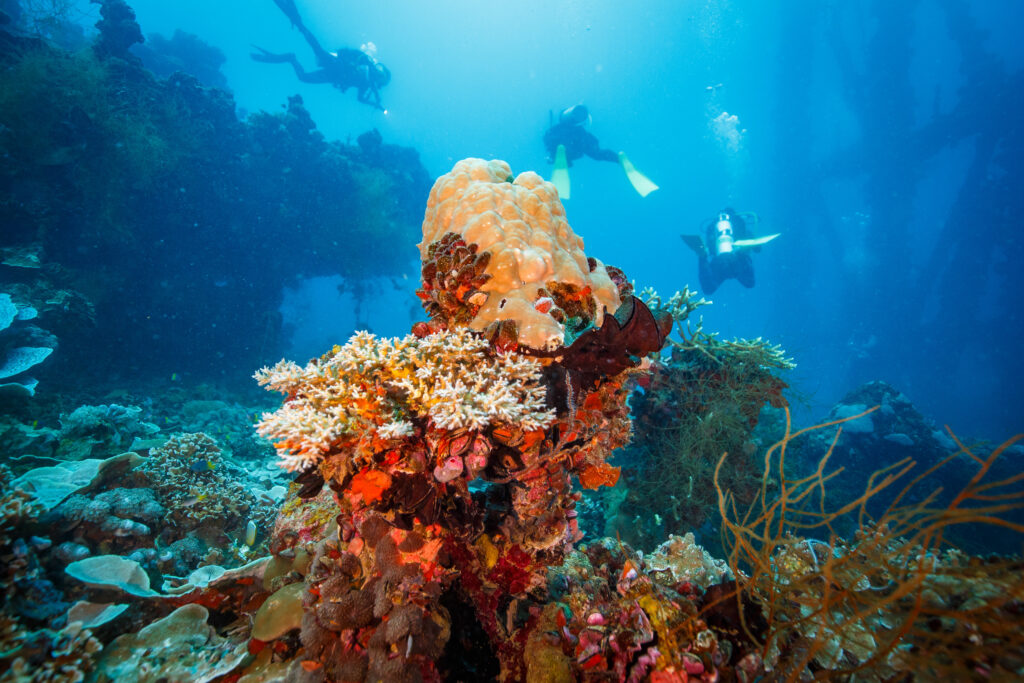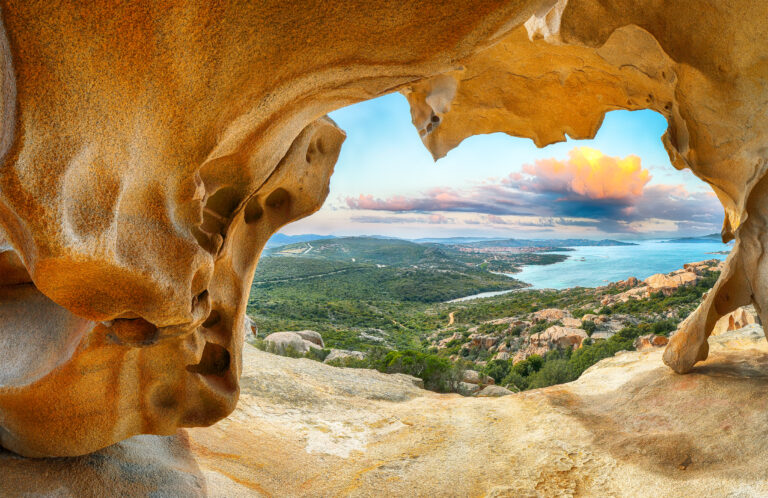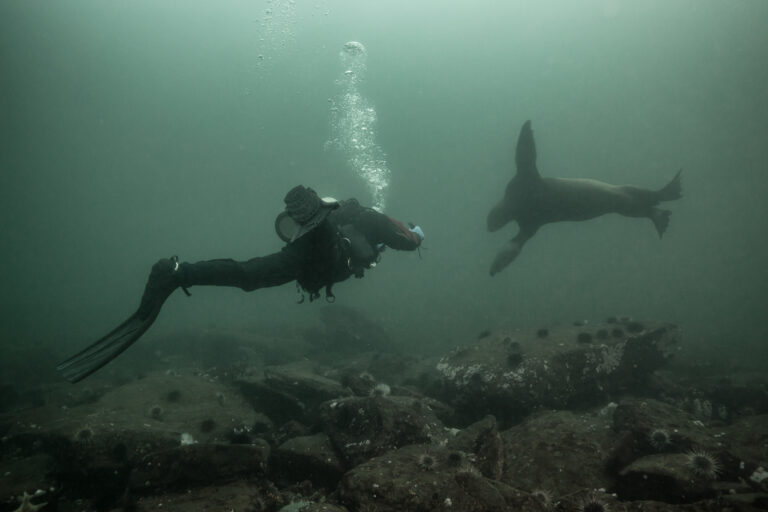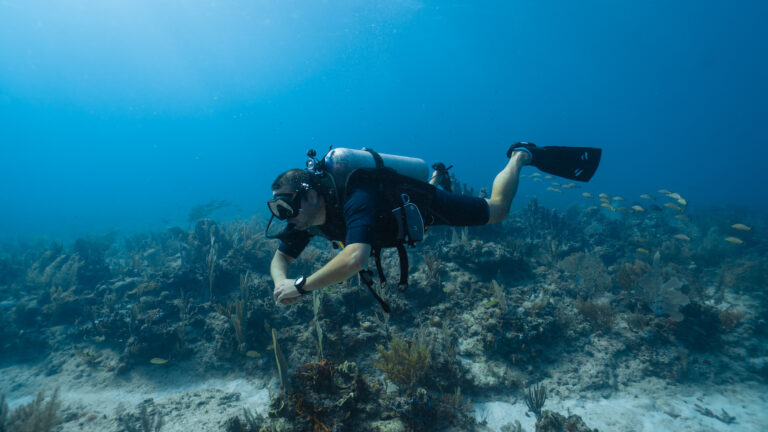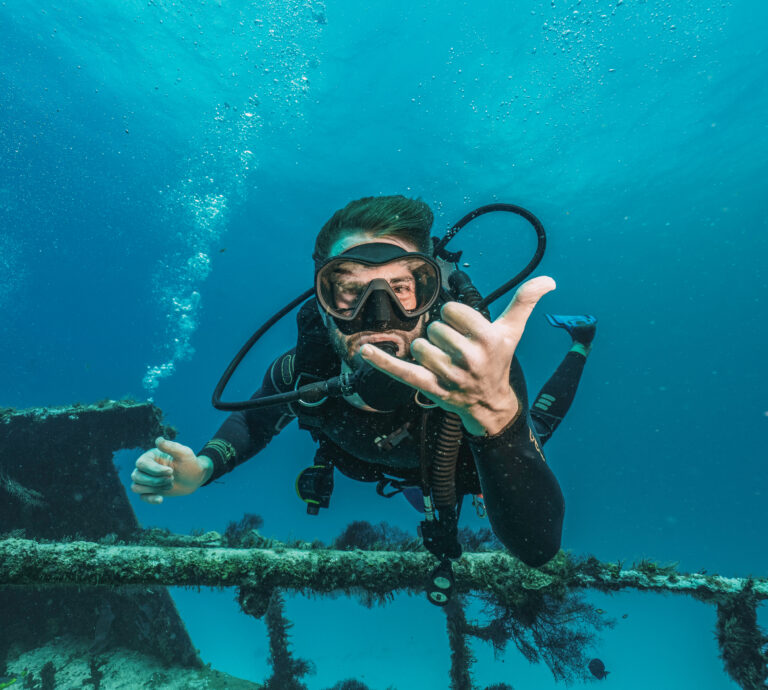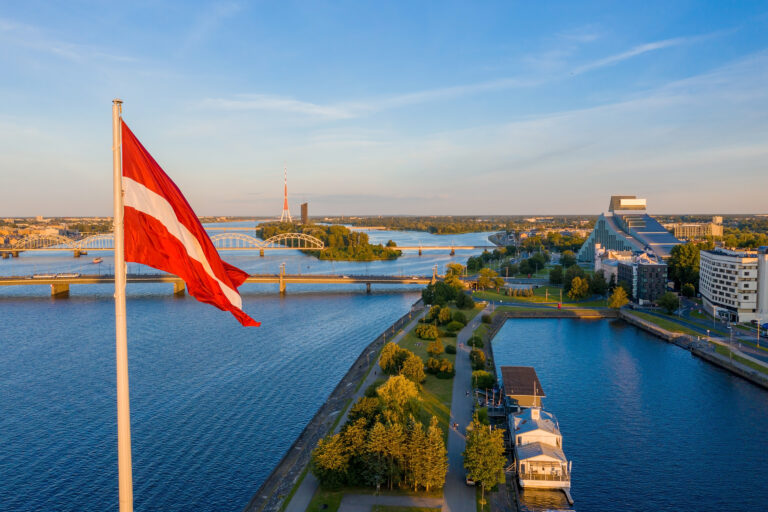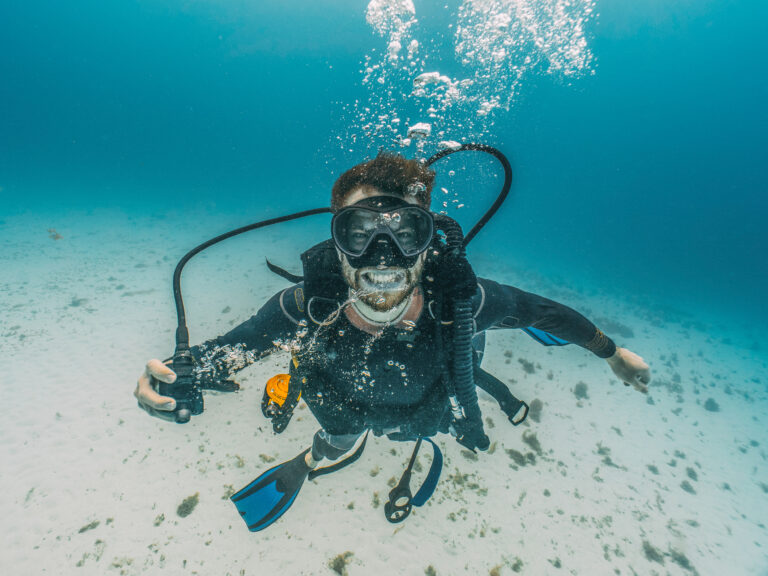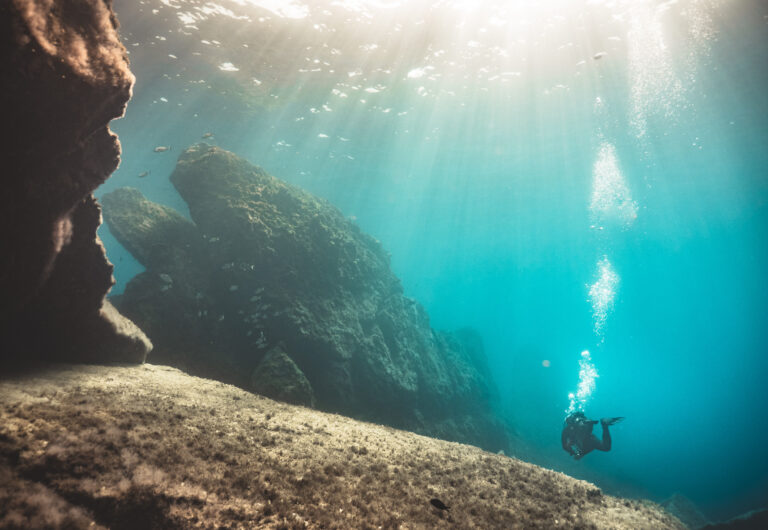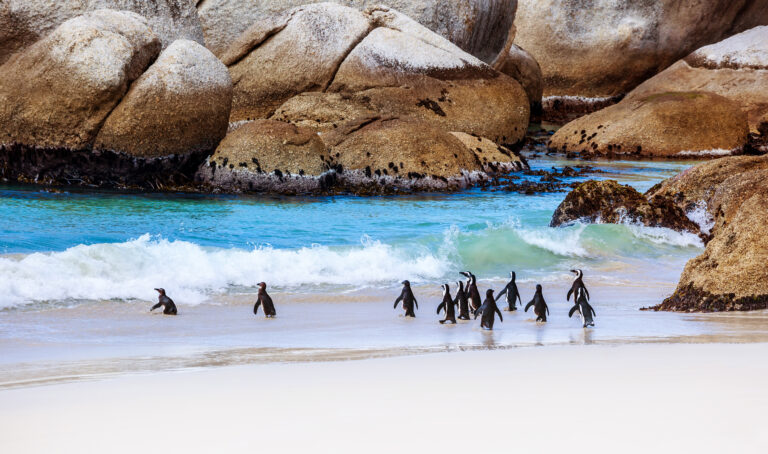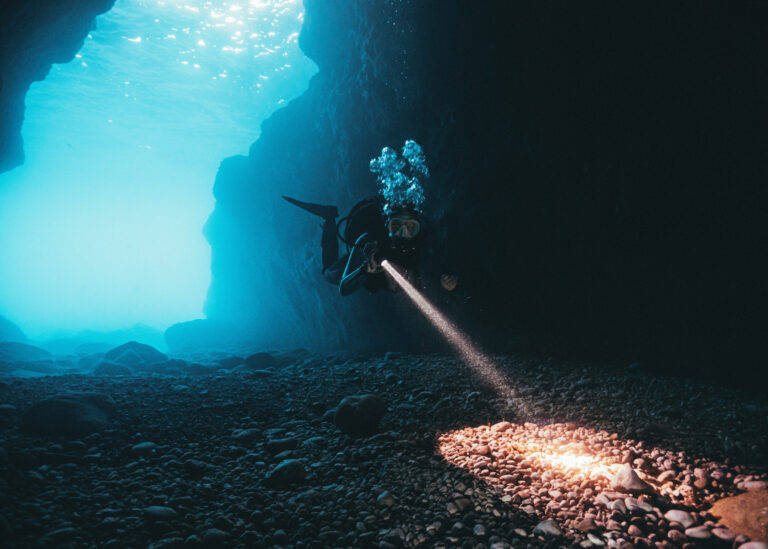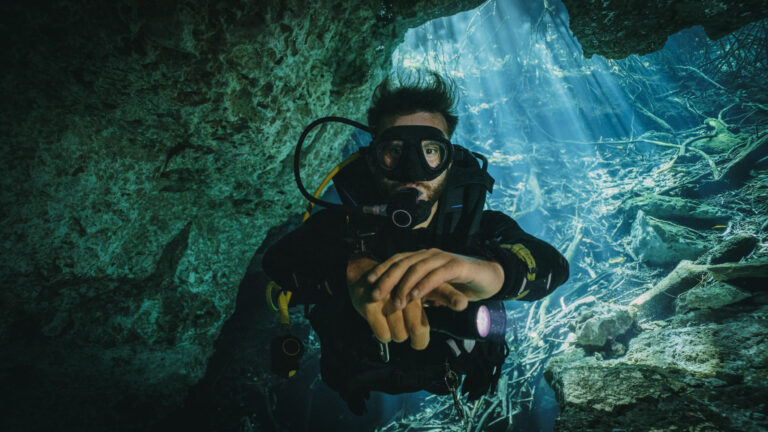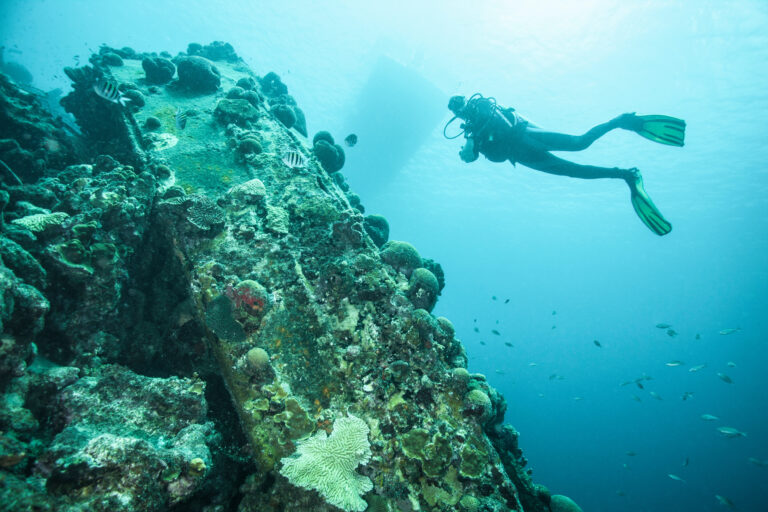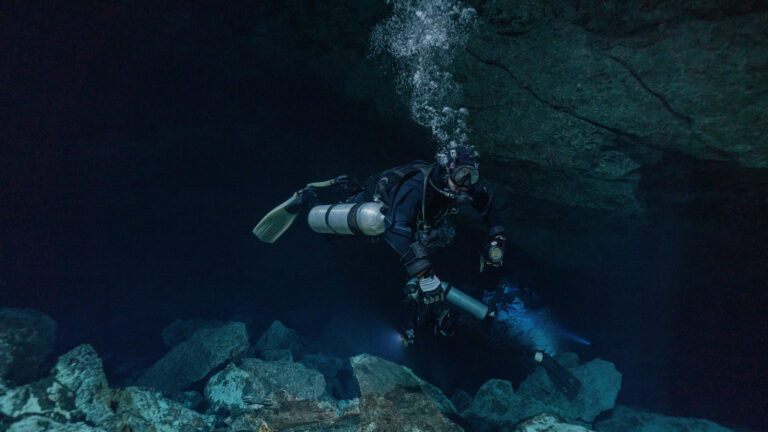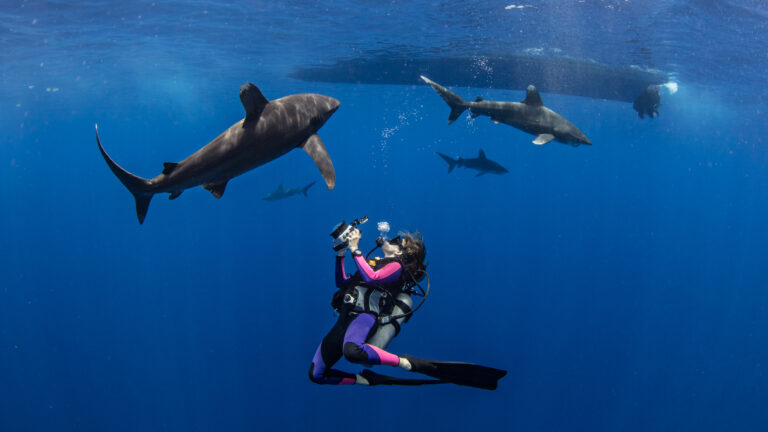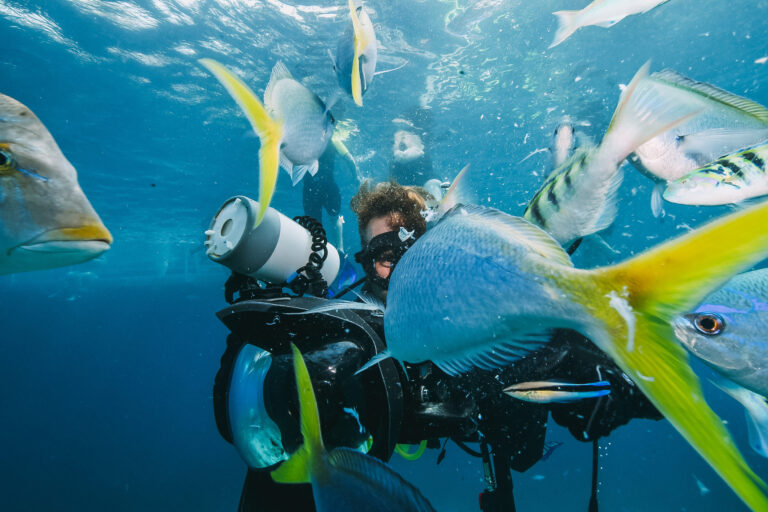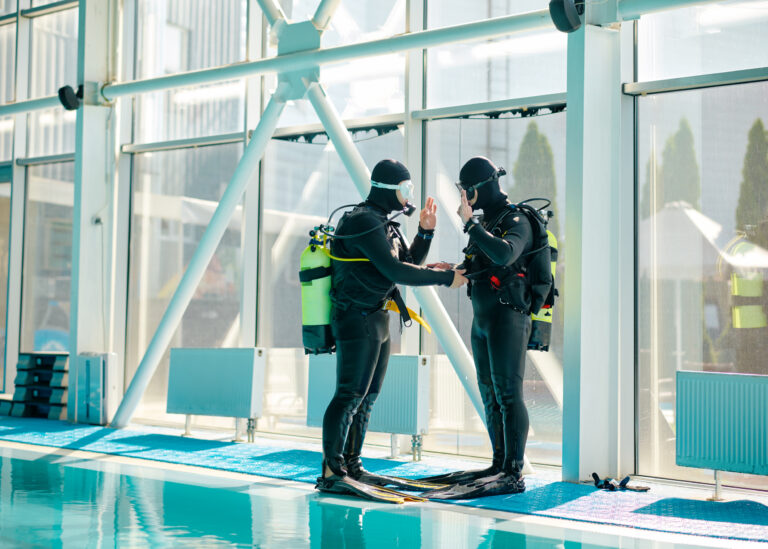SCUBA DIVERS’ TRAVEL GUIDE TO Romania
Romania is a hidden gem for scuba diving enthusiasts who want to explore the wonders of the Black Sea. This Eastern European country offers a variety of dive sites, from wrecks and caves to reefs and marine life. Whether you are a beginner or an advanced diver, you will find something to suit your taste and skill level in Romania.
You can dive in Romania all year round, but the best season is from May to October, when the water temperature is warmer, and the visibility is better. You can expect to see colorful corals, sponges, anemones, fish, crabs, octopus, dolphins and even sharks. Some of the most popular dive sites are the Sadu wreck, the Isverna cave, the Mangalia reef and the Constanta underwater park.
Romania is not only a great destination for scuba diving, but also for culture, history and nature lovers. You can visit the medieval castles, monasteries and villages, enjoy the scenic mountains and lakes, or sample the delicious cuisine and wine. Romania is a country that will surprise and delight you with its diversity and charm.
LOCATION AND GEOGRAPHY
Romania, a country with a rich cultural tapestry and diverse landscapes, may not be the first destination that springs to mind for scuba diving enthusiasts, yet it offers a unique underwater experience particularly in the Black Sea. Nestled in the southeastern part of Central Europe and bordered by Bulgaria, Ukraine, Hungary, Serbia, Moldova, and the Black Sea, Romania’s geography is marked by the Carpathian Mountains and the Danube River, which flows into the expansive Danube Delta before reaching the Black Sea. The coastal region of Romania stretches over 225 kilometers along the western edge of the Black Sea, where the waters are brimming with historical relics and marine life. Divers here can explore a variety of sites, including shipwrecks that date back to both World Wars and ancient times, submerged harbors, and the rich biodiversity of the Black Sea’s unique brackish waters. The underwater terrain is relatively gentle, making it suitable for both novice and experienced divers, and the visibility varies depending on the area and weather conditions. With its intriguing blend of natural and historical underwater attractions, Romania’s Black Sea coast offers a distinctive diving experience that combines the thrill of exploration with the beauty of the marine environment.
VISA AND ENTRY REQUIREMENTS
Before planning your scuba diving adventure in Romania, it is essential to understand the visa and entry requirements for the country. Romania is a member of the European Union but not a part of the Schengen Area. Travelers from EU countries can enter Romania without a visa and only need to present a valid national identity card or passport. For non-EU citizens, the requirements vary based on nationality. Many countries, including the United States, Canada, Australia, and New Zealand, are exempt from visa requirements for stays of up to 90 days within a 180-day period for tourism purposes, which includes scuba diving. However, it’s important to check the latest information from the Romanian Ministry of Foreign Affairs or the nearest Romanian embassy or consulate before your trip, as visa policies can change. Ensure your passport is valid for at least six months beyond your planned departure date from Romania. Additionally, while not common, some border officials may request proof of sufficient funds for your stay and a return or onward ticket.
GETTING TO Romania
Getting to Romania for a scuba diving adventure is a journey that offers both convenience and a touch of the exotic. Situated in Eastern Europe, Romania is accessible by air, with Bucharest’s Henri Coandă International Airport serving as the main gateway for international travelers. Major airlines provide direct flights from cities across Europe, and connecting flights from other continents are readily available. For those exploring Europe by land, extensive road and rail networks connect Romania with neighboring countries, making it possible to include a Romanian dive into a broader European itinerary. Once in Romania, the Black Sea coast is within a few hours’ drive from Bucharest, offering unique diving experiences such as exploring underwater relics and vibrant marine life. Whether arriving by plane, train, or automobile, the journey to Romania’s underwater treasures is one that promises to be as enriching as the dive itself.
BEST TIME TO DIVE
The best time to scuba dive in Romania, particularly in the Black Sea, is from late spring through early autumn, with the optimal conditions generally found between June and September. During these months, the water temperatures are more comfortable, ranging from 20°C to 25°C (68°F to 77°F), which not only makes for a pleasant diving experience but also encourages a richer display of marine life. Visibility can vary but is often at its peak during this period, reaching up to 10-20 meters (33-66 feet) on good days. Divers should note that outside of this prime season, the Black Sea can become quite cold and rough, with temperatures dropping below 18°C (64°F), which may require more protective thermal wear and experience with cold-water diving. Whether exploring historic shipwrecks or the unique ecosystems of the Black Sea, timing your dive within this window will enhance your underwater adventure in Romania’s intriguing aquatic landscape.
ACCOMMODATION OPTIONS
In the enchanting realm of Romania, scuba diving enthusiasts will find a variety of accommodation options to suit their needs and preferences. Nestled along the Black Sea coast, where the Danube meets the sea, dive-centric resorts and hotels in towns like Constanța and Eforie Nord offer convenient access to underwater adventures. These range from budget-friendly guesthouses to more luxurious hotels, many providing amenities such as gear rental services, dive packages, and knowledgeable staff to assist with organizing excursions to intriguing dive sites like the submerged ancient city of Histria or the vibrant marine life around the wreck of the SS Paris. Inland, near freshwater diving gems such as the submerged forests of Lake Bezid or the mysterious caves of the Apuseni Mountains, cozy cabins and rural guesthouses provide a tranquil retreat for divers seeking to explore Romania’s unique freshwater environments. Whether you’re looking for the simplicity of a beachside bungalow or the comfort of a full-service resort, Romania’s accommodation options cater to divers eager to discover the country’s underwater secrets while enjoying the warm hospitality for which the region is known.
DIVE OPERATORS AND DIVE SHOPS
In the landlocked tapestry of Eastern Europe, Romania might not be the first destination that springs to mind for underwater exploration, yet it offers a unique scuba diving experience that defies expectations. Dive operators and shops in Romania are concentrated around the Black Sea coast, with a few nestled inland near natural and man-made lakes. These establishments cater to a range of divers, from beginners to seasoned enthusiasts, providing certification courses, equipment rentals, and guided dives. The Black Sea’s relatively calm waters are home to historical wreck sites and a surprising diversity of marine life, which can be explored under the guidance of experienced local dive masters. Inland, divers can plunge into the clear waters of Romania’s lakes, such as Lake Bicaz, where dive shops offer the chance to navigate freshwater environments with different ecological characteristics. Romanian dive operators are known for their hospitality and in-depth knowledge of the local underwater terrain, ensuring a memorable and safe diving experience that unveils the hidden aquatic treasures of this unexpected diving locale.
TRANSPORTATION WITHIN Romania
While Romania may not be the first country that comes to mind for scuba diving, it offers unique underwater experiences, particularly in the Black Sea. To reach these dive sites, transportation within the country is fairly straightforward. Most international travelers will arrive in Bucharest, the capital, from where they can take domestic flights, buses, or trains to coastal cities such as Constanța, which is the gateway to the Black Sea. Car rentals are also available for those who prefer a more flexible schedule and wish to explore the scenic routes at their own pace. Once in Constanța or other coastal towns, local transportation options such as taxis, buses, or even boats can be used to reach specific marinas and dive centers. It’s important to plan ahead, especially during the peak summer months, as the demand for transportation to popular coastal areas can be high.
CURRENCY AND PAYMENT METHODS
When traveling to Romania for scuba diving adventures, it’s important to note that the official currency is the Romanian Leu (RON). While major cities and tourist areas, including diving centers along the Black Sea coast, often accept credit cards such as Visa and MasterCard, it’s advisable to carry some cash for smaller purchases, tips, or in places where electronic payments are not an option. ATMs are widely available, especially in urban areas, but less so in remote diving spots. Currency exchange services are offered at banks, airports, and authorized exchange offices, but it’s recommended to compare rates as they can vary. It’s also worth noting that while the Euro is commonly accepted in many European countries, it is not an official currency in Romania, and not all businesses may accept it. Therefore, having local currency on hand will ensure a smoother transaction process as you enjoy the underwater wonders of Romania.
LANGUAGE AND COMMUNICATION
When embarking on a scuba diving adventure in Romania, it’s important to note that the primary language spoken is Romanian. While Romanian is the official language, in tourist areas and within the diving community, English is commonly spoken, especially by dive operators and instructors. Knowledge of basic Romanian phrases can enhance your experience, allowing for smoother interactions with local residents and a deeper appreciation of the country’s rich culture. However, for dive-related communication underwater, the universal language of hand signals is used. These non-verbal cues are essential for safety and coordination among divers, transcending linguistic barriers. It’s advisable to familiarize yourself with these signals during your pre-dive briefings. Dive shops often provide materials and assistance in multiple languages to ensure a clear understanding of safety procedures, dive plans, and local diving laws. Whether you’re conversing with fellow divers on the boat or negotiating the purchase of souvenirs onshore, a friendly demeanor and a willingness to engage will go a long way in fostering positive exchanges throughout your Romanian diving excursion.
LOCAL CULTURE AND ATTRACTIONS
Romania, often celebrated for its rich history and picturesque landscapes, offers a unique cultural tapestry that extends to its lesser-known scuba diving experiences. Beyond the allure of exploring the underwater realms of the Black Sea, where remnants of ancient shipwrecks whisper tales of bygone eras, visitors can immerse themselves in the vibrant local culture. The coastal region, particularly around the town of Constanța, is steeped in history, with attractions such as the ancient Roman Edifice with Mosaic, showcasing intricate Roman mosaics, and the Archaeology Park, where ruins speak of the area’s Greek and Roman past. After a day beneath the waves, divers can indulge in the local cuisine, savoring fresh seafood and traditional Romanian dishes like “sarmale” (cabbage rolls) and “mămăligă” (polenta), often accompanied by the lively sounds of folk music. The warmth of Romanian hospitality, combined with the region’s rich cultural heritage and the serene beauty of the Black Sea, makes for an enchanting scuba diving destination that transcends the underwater experience.
CULTURAL ETIQUETTE AND TIPS
When scuba diving in Romania, particularly in the Black Sea, it’s important to approach the activity with a sense of respect for both the environment and local customs. Romanians are known for their hospitality and warmth, but they also value politeness and modesty. It’s customary to greet your diving instructors and fellow divers with a handshake and to use formal titles until invited to do otherwise. Be punctual for your diving sessions, as timeliness is considered a sign of respect. When discussing diving experiences, be mindful of your surroundings and avoid loud or boisterous behavior, especially in more tranquil or rural areas. Environmental conservation is taken seriously, so ensure you adhere to all guidelines regarding the protection of marine life and historical underwater sites, which may have significant cultural importance. Lastly, tipping is appreciated for good service, with 10% being standard for dive guides and boat crews, reflecting your gratitude for their expertise and assistance.
LOCAL LAWS AND REGULATIONS RELEVANT TO TOURISTS
When planning a scuba diving trip to Romania, it is essential for tourists to be aware of the local laws and regulations that govern underwater activities. Romania, with its access to the Black Sea and numerous inland dive sites, requires divers to hold a valid certification from a recognized diving organization. Diving within marine protected areas, such as the Danube Delta Biosphere Reserve, is strictly regulated to preserve the delicate ecosystems, and permits may be required. It is illegal to remove any artifacts or disturb archaeological sites, many of which are remnants of ancient shipwrecks. Additionally, divers should be cognizant of seasonal restrictions that protect marine life during breeding periods. All diving operations must comply with Romanian Coast Guard regulations, including the use of dive flags and adherence to local boating and fishing laws. It is advisable to dive with local, licensed dive operators who are familiar with the specific regulations of each dive site. Failure to follow these laws can result in hefty fines or legal action, so it is in every diver’s best interest to stay informed and compliant.
SAFETY TIPS AND EMERGENCY CONTACTS
When diving in Romania, safety should be your utmost priority. Always dive within your certification limits and ensure that your equipment is well-maintained and appropriate for the conditions. Due to the varied dive environments, from the Black Sea’s historical wrecks to the underground wonders of Scărișoara Glacier Cave, it’s crucial to be prepared for cold water diving and potentially strong currents. Before your adventure, familiarize yourself with local emergency procedures and ensure you have access to up-to-date emergency contact information. The nearest hyperbaric chamber is located in Constanța, reachable at +40 241 664 634, and should be contacted immediately in case of suspected decompression sickness. Additionally, keep the contact details of the local coastguard and DAN Europe (Divers Alert Network) handy, which provides emergency assistance, medical advice, and insurance for divers. Their emergency hotline is +39 06 4211 8685. Always dive with a buddy, and inform someone onshore of your dive plan and expected return time. By following these precautions, you can help ensure a safe and enjoyable diving experience in Romania’s unique underwater landscapes.
HEALTH AND TRAVEL INSURANCE
When planning a scuba diving trip to Romania, it’s crucial to consider your health and travel insurance options carefully. While Romania offers a unique diving experience in the Black Sea, with its intriguing wrecks and diverse marine life, it’s important to ensure that your insurance covers scuba diving activities, as standard policies may exclude such specialized pursuits. Look for a policy that includes coverage for potential diving-related injuries, hyperbaric treatment, and medical evacuation, which can be costly without proper insurance. Additionally, verify that your policy provides comprehensive health coverage for the duration of your stay, as access to healthcare in Romania may vary in quality, especially outside major cities. It’s also wise to check if your insurance covers trip cancellations, lost diving equipment, and any COVID-19 related issues, given the ever-changing travel landscape. Always carry proof of your insurance and emergency contact information with you while diving. By taking these precautions, you can immerse yourself in the underwater wonders of Romania with peace of mind, knowing that you are well-protected against unforeseen circumstances.

